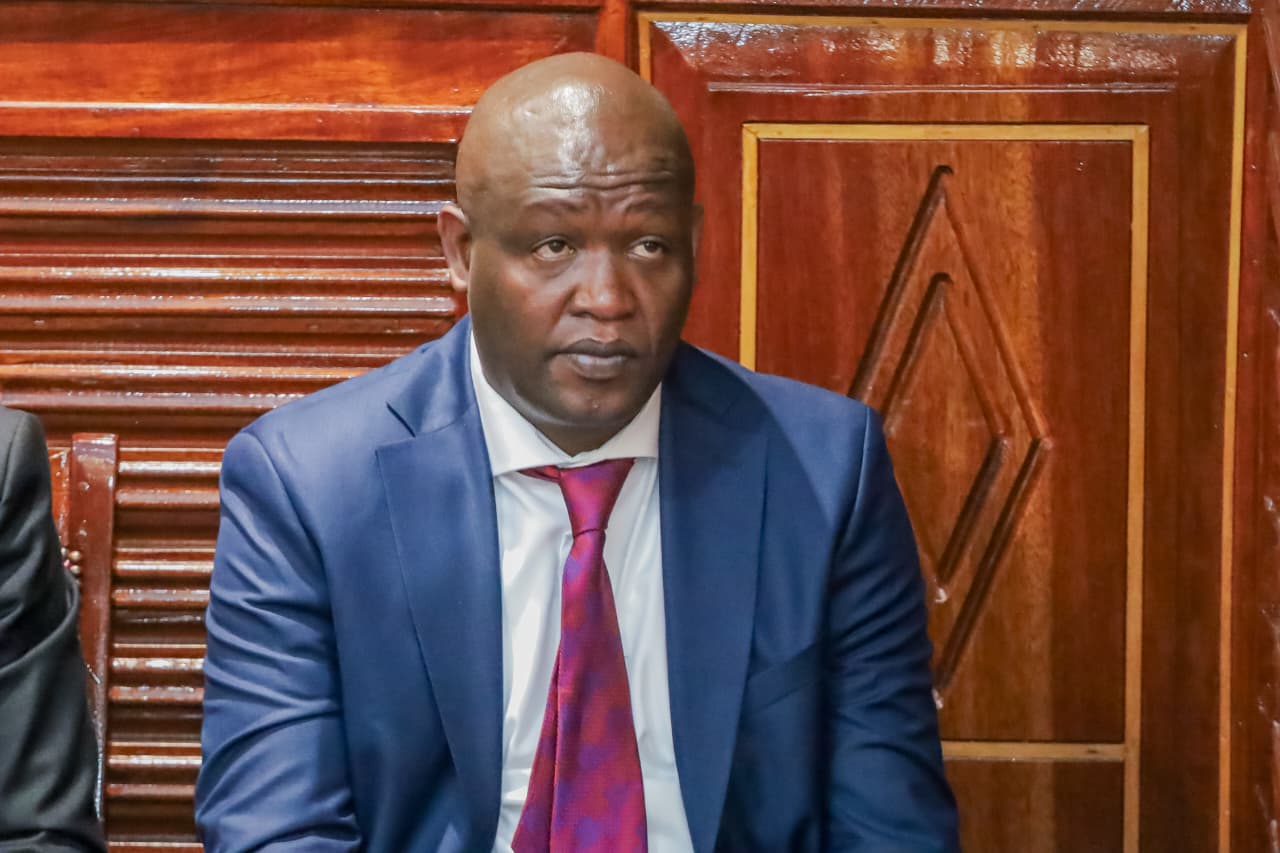Senate to decide Governor Mutai’s fate amid dispute over electronic voting

Mutai put up a strong defence, insisting the County Assembly did not meet the required numbers to remove him.
The Senate will today determine whether Kericho Governor Erick Mutai remains in office or becomes the second county boss to be removed since the 2022 elections, as questions over electronic voting and the two-thirds threshold dominate his impeachment trial.
On Thursday, Mutai put up a strong defence, insisting the County Assembly did not meet the required numbers to remove him.
He argued that only 29 members legally voted, falling short of the 32 needed, despite the Assembly maintaining that 33 supported his ouster.
His lawyers claimed four of those votes were cast irregularly on behalf of members who did not log in, saying they were intended to end the process before the actual charges were considered.
The Senate must first decide on these issues before moving to a vote. Should the matter proceed, Mutai will be removed if at least 24 of the 47 elected senators back any of the charges. Voting will be by delegation, meaning only elected senators are eligible.
The integrity of the Assembly’s electronic voting system became central in the proceedings.
On the witness stand, ICT head Alfred Korir, who manages the platform, faced tough questioning over its security. Mutai’s team alleged that the system allowed multiple logins and could be accessed by anyone connected to an MCA.
Defence lawyer Peter Wanyama told senators that the platform had never undergone penetration tests and was not foolproof. He said some MCAs struggled to log in up to seven times, and logs showed nine members voting from one laptop, despite the Assembly claiming only three required assistance. “Are you aware if their telephone numbers were linked to the laptops, or were they voting on their phones?” he asked Korir.
Assembly lawyer Elias Mutuma dismissed the concerns, calling them speculative, and insisted the logs proved voting took place inside the chamber.
Senators, however, pressed for clarity. Kitui Senator Enock Wambua asked how a user could be logged in twice at the same time, while Tana River Senator Danson Mungatana questioned why Korir remained logged in throughout the process.
Kakamega Senator Boni Khalwale challenged the Assembly to explain why such a “porous” system had been approved in the first place. Nandi Senator Samson Cherargei raised concerns over how members with basic “mulika mwizi” phones were able to receive electronic voting links.
Homa Bay Senator Moses Kajwang’ pointed out that the Assembly had already admitted presenting logs with errors, reminding members that the Supreme Court in 2017 directed that such logs must be retrieved in the presence of both sides.
Amid the controversy, Speaker Amason Kingi ordered the ICT Authority of Kenya to audit the system. Their report, expected this morning, will reveal how many MCAs voted, whether multiple logins occurred, and if outsiders accessed the system.
The hearing also heard from Kapkugerwet MCA Martin Cheruiyot Kiplangat, who claimed he was impersonated. He testified that while a voting link had been sent to his phone, the device was in his car and he never logged in.
He was among 18 MCAs who had demanded a roll-call vote, saying the electronic system was open to abuse. But Senator Kisang of Elgeyo Marakwet dismissed his testimony as contradictory, asking: “How come the 18 of you did not walk out or seek to be assisted to vote? If this is the governor’s best witness, then he is cooked.”
The political undertones of the impeachment also surfaced, with Mutai accusing County Assembly Speaker Patrick Mutai of orchestrating his removal. The process began after a July 10 letter from Deputy Governor Fred Kirui alleging financial impropriety.
Finance CEC Jackson Rop and other senior officers testified before the Senate on contract splitting, inflated procurement, double payments, falsified records and unsupported spending.
However, Mutai’s defenders argued that procurement procedures do not directly involve the governor. Senator Cherargei asked: “What is the nexus between what you have tabled before the House and the governor’s role?” Senator Wambua added: “Is he guilty simply for being head of county government, or can you directly link him to impropriety?”
The final decision now rests with the Senate, which must weigh the evidence, rule on the validity of the voting system, and decide whether Governor Mutai should be removed from office.
